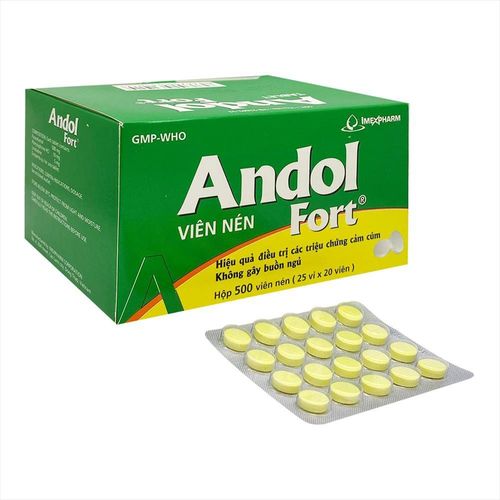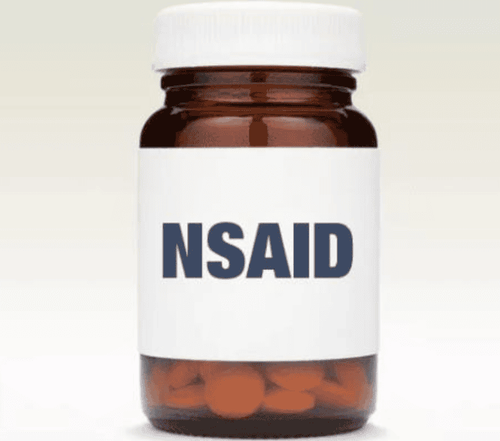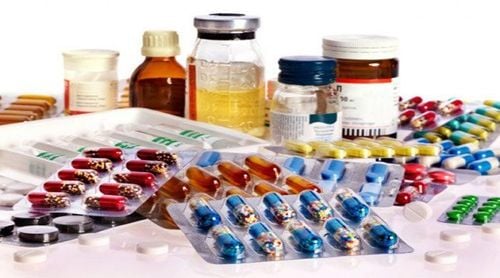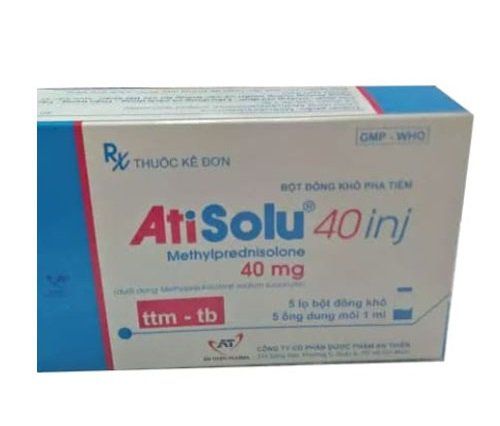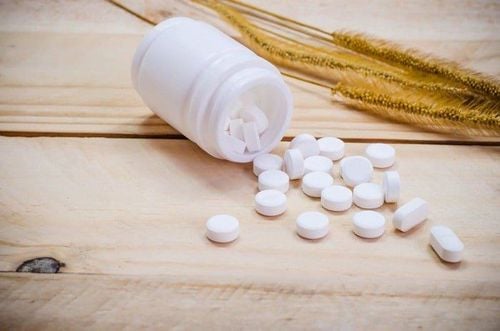This is an automatically translated article.
Ganteston drug belongs to the group of non-steroidal anti-inflammatory drugs (NSAIDs) with effective analgesic, antipyretic and anti-inflammatory effects. This is a non-narcotic pain reliever, effective for the relief of mild to moderate pain such as: pain from trauma, osteoarthritis, rheumatoid arthritis and other conditions requiring anti-inflammatory drugs.
1. What does Ganteston do?
Ganteston medicine contains the main ingredient Nabumetone 500mg.
This is a non-steroidal anti-inflammatory agent with the ability to relieve pain, reduce fever, and anti-inflammatory often used for mild to moderate pain, typically:
Support treatment for osteoarthritis patients; Support treatment for rheumatic patients; Combined with other drugs when the patient needs anti-inflammatory drugs. Ganteston is available in the form of film-coated tablets.
2. Instructions on how to take Ganteston
How to use
Ganteston drug is made in tablet form, so patients take the drug orally, with or without food. Tablets should be taken at bedtime and should not be chewed.
Suggested dosage:
Dosage for adults: Take 1000mg/day, equivalent to 2 tablets. Drink 1 time a day. Dosage for patients with severe and prolonged pain: Take 1500-2000 mg, equivalent to 3-4 tablets, divided into 2 oral doses; Dosage for the elderly: Take up to 1000mg/day, equivalent to 2 tablets, taken once a day. Note:
Appropriate dose adjustment is required for patients with impaired renal function (renal impairment <30 mL/min); During treatment with Ganteston, patients need to follow the doctor's instructions. Do not arbitrarily adjust the dose to serve your own will.
3. Ganteston side effects
In addition to effective pain relief, antipyretic, anti-inflammatory, during the use of Ganteston, users may still encounter some of the following side effects:
Dry mouth; Bloody stools, gastrointestinal bleeding; Diarrhea; Digestive disorders ; Abdominal pain, constipation, diarrhea; Flatulence, bloating, indigestion; Nausea, vomiting; Mouth ulcers; Gastritis; Headache, dizziness; Fatigue, weakness; Drowsiness or insomnia; Tinnitus, visual effects; Edema, paresthesia; Rash, itching, photosensitivity (uncommon); Decreased renal function, thrombocytopenia (rare). If you notice any serious or unusual signs during treatment with Ganteston, users should promptly notify their doctor for timely help.
4. Note when using Ganteston drug
Contraindicated to use Ganteston drug for the following cases:
Patients with hypersensitivity to any component of the drug (especially Nabumetone); People with a history of asthma, urticaria, allergy to aspirin or other non-steroidal anti-inflammatory drugs (NSAIDs); The patient is suffering from peptic ulcer or has a history of peptic ulcer; Patients with severe liver failure (such as cirrhosis); Pregnant & lactating women. In addition, special care should be taken when using Ganteston for the following subjects:
Patients with a history of gastrointestinal disease; Patients with fluid retention, hypertension, heart failure (to avoid peripheral edema); Patients with renal impairment (Cr clearance < 30 ml/min) should consider dose reduction; Careful monitoring in patients with hepatic impairment; Children (need to consult a doctor before taking this medicine). Other notes:
Do not take Ganteston at least 2 days before surgery; Patients who drink alcohol while taking this medicine may have an increased risk of stomach ulcers; During treatment with Ganteston, patients should not stop taking the drug or adjust the dose on their own, but must consult their doctor before doing so.
5. Ganteston drug interactions
During treatment, there may be competition or interaction between Ganteston drug with food or other drugs and functional foods, affecting bioavailability, absorption, distribution or speed. drug metabolism such as:
Other NSAIDs; Antibiotics: Cyclosporine; Warfarin anticoagulant; Anticonvulsants: Hydantoin; Hypoglycemic drugs: Sulphonylurea Lithium-containing drugs: Lithium. To ensure safety when using many different drugs, the patient should list the drugs or supplements being used at this time so that the doctor can know and advise to avoid unintended drug interactions. would like.




